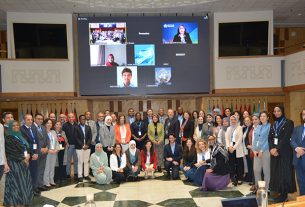Genetically modified organisms (GMOs) have been a subject of heated debate for decades. With concerns ranging from environmental impact to health risks, GMOs often find themselves at the center of controversy. But when it comes to the question of whether GMOs are bad for human health, science paints a different picture than what is commonly portrayed in popular discourse.
What Are GMOs?
Genetically modified organisms refer to plants, animals, or microorganisms that have been altered through genetic engineering to exhibit traits that are not naturally found in them. This can include resistance to pests, tolerance to herbicides, enhanced nutritional content, or faster growth rates. For example, crops like Bt corn, Roundup-ready soybeans, and Golden Rice are some of the most well-known GMOs.
The process of creating GMOs involves manipulating the organism’s genetic material directly in a way that would not occur through traditional breeding methods. This genetic modification is done to enhance desirable characteristics such as yield, disease resistance, or nutritional content.
Health Concerns: The Basis of Fear
Despite the widespread use of GMOs, there are significant concerns that have fueled public fear. Many people worry that GMOs could cause allergies, toxicity, cancer, or other long-term health issues. These concerns have been amplified by anti-GMO campaigns, which often emphasize potential dangers without providing solid scientific evidence.
The fear is also often exacerbated by mistrust of corporate interests—especially with large biotechnology firms such as Monsanto (now part of Bayer) being major producers of GMO seeds. Critics argue that these companies prioritize profits over public safety, fueling the perception that GMOs are unsafe.
What Does the Science Say?
When it comes to evaluating the safety of GMOs, the scientific consensus is clear: GMOs are not inherently harmful to human health. Numerous studies have been conducted over the past few decades to assess the safety of GMOs, and the overwhelming majority of scientific bodies have concluded that genetically modified foods are no more risky than conventional foods.
Here are a few key points based on extensive scientific research:
- Extensive Safety Testing:
Before GMOs are approved for commercial use, they undergo rigorous safety testing. Regulatory agencies like the U.S. Food and Drug Administration (FDA), the European Food Safety Authority (EFSA), and the World Health Organization (WHO) assess potential risks to human health, including the likelihood of allergic reactions, toxicity, and unintended effects. These evaluations involve laboratory testing, animal studies, and long-term monitoring to ensure that the GMOs in question are safe for consumption. According to the National Academy of Sciences, “The overwhelming majority of studies on genetically modified organisms (GMOs) indicate that they are as safe to eat as conventional foods” (National Academy of Sciences, 2016). - No Proven Link to Allergies or Toxicity:
Concerns about GMOs causing allergies or toxicity have been investigated extensively. While it is true that some people have allergies to certain foods, there is no evidence that GMOs introduce new allergens or toxins that would harm human health. In fact, one of the key regulatory processes for GMO approval involves ensuring that the introduced genes do not create new proteins that could potentially cause allergic reactions. For example, a genetically modified version of soybean was developed to improve its nutritional profile, but it was subjected to tests to ensure it did not create new allergens. The results showed that the genetically modified soybeans did not pose any new health risks compared to conventional soybeans (FDA, 2000). - Long-Term Health Monitoring:
The claim that GMOs might cause long-term health issues, such as cancer or organ damage, has been addressed by numerous long-term studies. For instance, a comprehensive review by the American Medical Association (AMA) found that there is no evidence of any health issues directly linked to the consumption of GMOs. Similarly, the WHO states that “GMOs currently available on the international market have passed risk assessments and are not likely to present risks for human health” (WHO, 2014). - Environmental Impact and Pesticide Use:
While health risks may not be a significant concern, environmental impact remains a topic of concern. Some GMOs are engineered to resist herbicides (such as glyphosate-resistant crops), leading to concerns about increased pesticide use and the potential for developing herbicide-resistant weeds. However, there is no direct evidence suggesting that these environmental issues lead to health risks for consumers. Interestingly, studies have shown that some genetically modified crops, such as Bt cotton and Bt corn, have actually led to reduced pesticide use, as these crops are engineered to resist certain pests, thus reducing the need for chemical interventions.
Are GMOs Safe for Specific Populations?
Some critics argue that while GMOs may be safe for the general population, they could be potentially harmful to specific groups, such as children or pregnant women. However, there is no conclusive evidence to support this theory. The FDA and other regulatory bodies have considered a wide range of vulnerable populations in their safety assessments, and studies have not identified any specific health risks for these groups.
What About Public Perception?
Despite the overwhelming scientific consensus on the safety of GMOs, public perception remains deeply divided. According to a 2016 study by the Pew Research Center, while 88% of scientists agreed that GMO foods are safe to eat, only 37% of the public shared that view. This disparity highlights the influence of media, activism, and public mistrust of biotechnology corporations.
Education is key to bridging this gap. As more people become aware of the rigorous safety evaluations and the extensive scientific data supporting GMO safety, concerns may gradually diminish. However, it will require ongoing transparency from both regulatory bodies and the biotech industry to ensure that the public feels informed and confident in the safety of genetically modified foods.
Conclusion: The Verdict on GMOs and Health
The scientific evidence overwhelmingly supports the conclusion that GMOs are not inherently harmful to human health. Extensive testing and ongoing research have shown that genetically modified foods are as safe to consume as conventional foods. The concerns about allergies, toxicity, and long-term health risks are not supported by credible scientific data.
That said, concerns about environmental impact, corporate practices, and ethical considerations regarding genetic modification should continue to be addressed through robust regulation, transparent practices, and public engagement. For now, the fear surrounding GMOs is largely unfounded, and the technology offers significant benefits, such as increased crop yields, enhanced nutritional content, and reduced pesticide use.
References:
- National Academy of Sciences (2016). “Genetically Modified Crops: Experiences and Prospects.” National Academy Press
- World Health Organization (2014). “Frequently Asked Questions on Genetically Modified Foods.” WHO Fact Sheet
- U.S. Food and Drug Administration (2000). “Safety of Genetically Engineered Foods.” FDA Report
- American Medical Association (2012). “Report 4 of the Council on Science and Public Health: Genetically Modified Crops and Foods.” AMA Policy
This article aims to clear up the confusion surrounding the health risks of GMOs by providing a balanced view grounded in scientific evidence.



